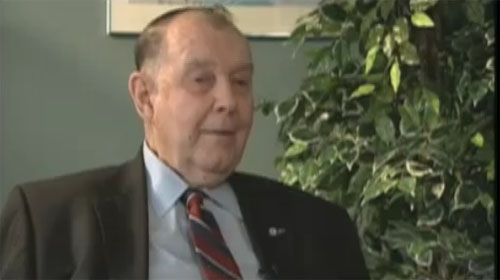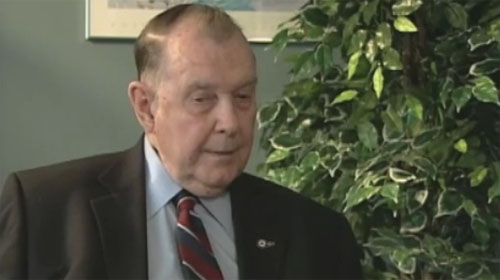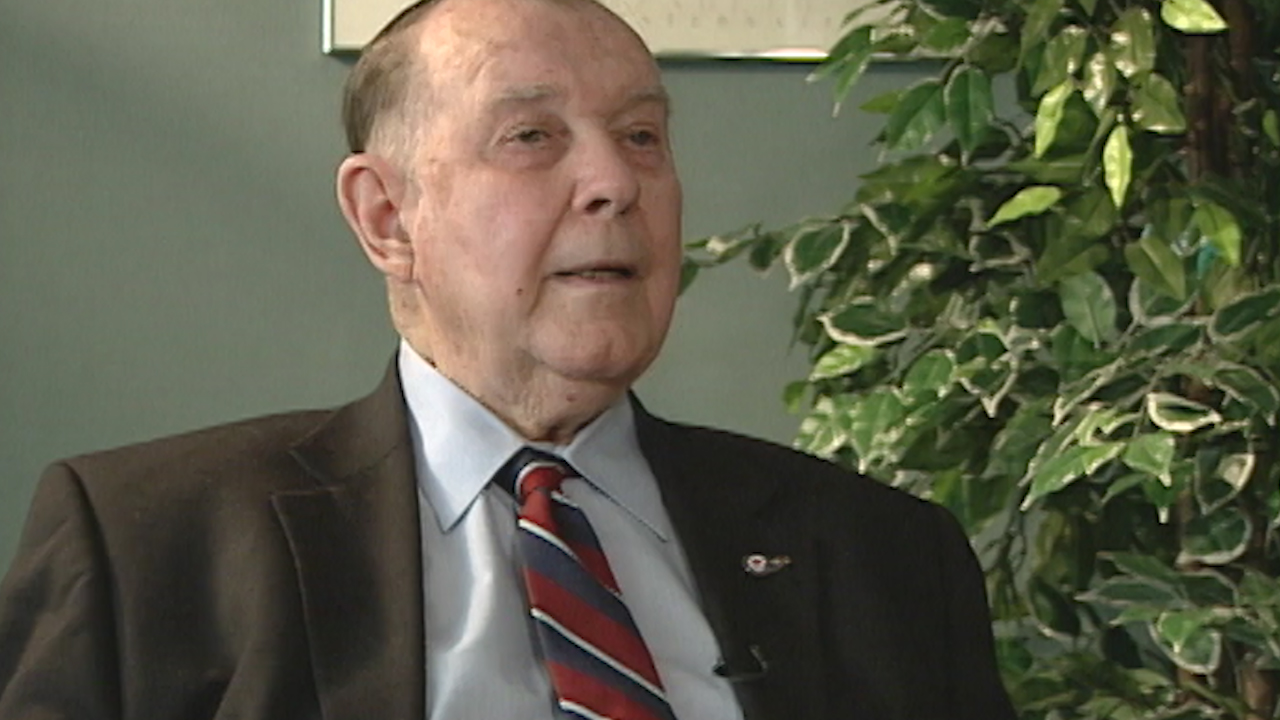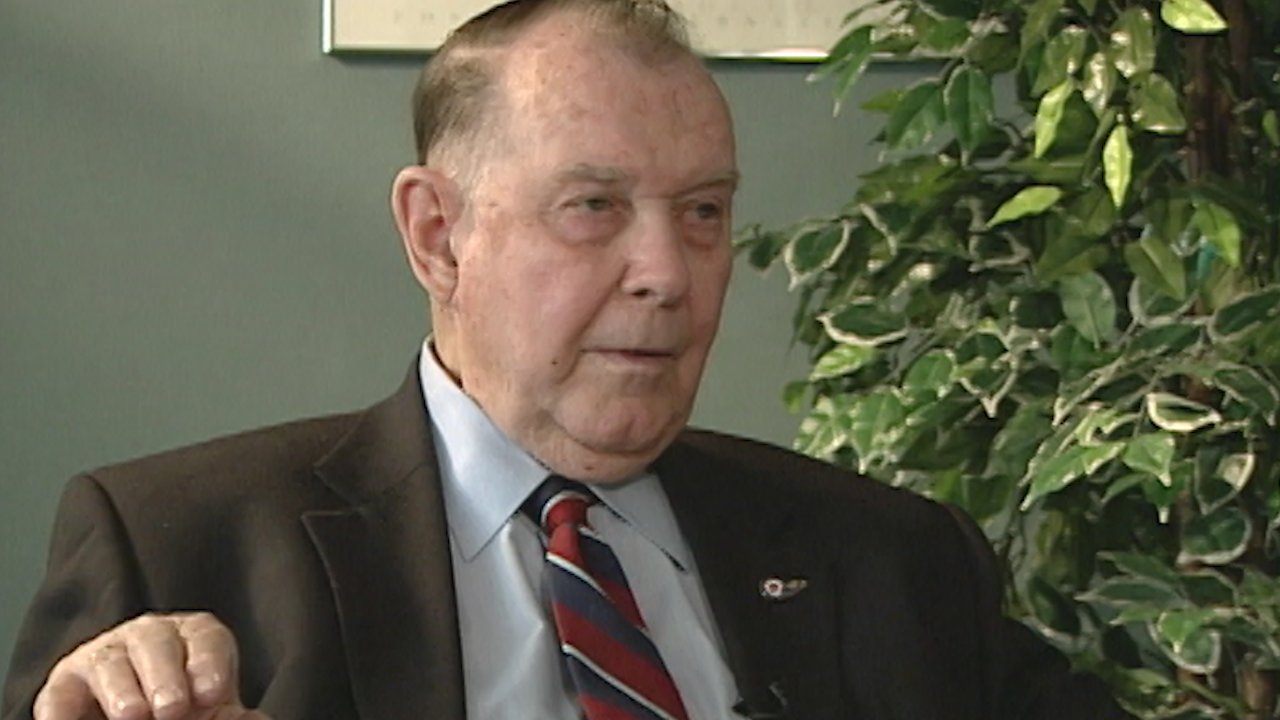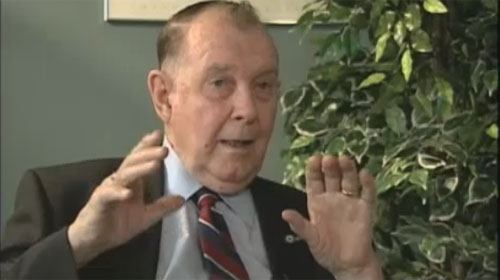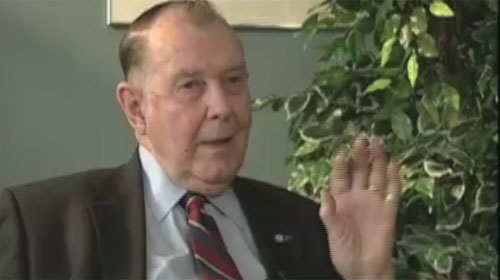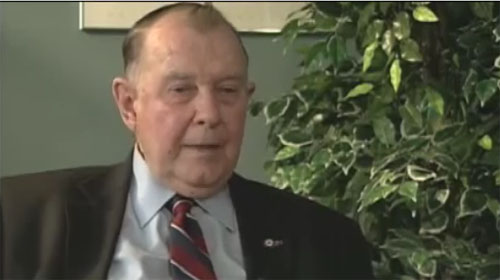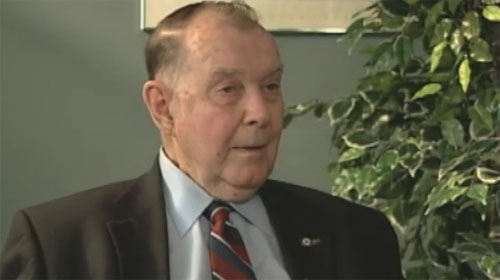Fair Game
Heroes Remember
Fair Game
Transcript
Description
Mr. Fox describes attacking targets of opportunity and explains that anything that moved was fair game.
Charley Fox
Mr. Fox was born in Guelph, Ontario in 1920. He signed up in March, 1940, and was called up the following October. Mr. Fox excelled during pilot training, but a bout of scarlet fever prevented him from accompanying his squadron overseas. Once returned to health, he became a flight instructor, during which time he married. A short time later, he was sent overseas and joined the 412 Spitfire Squadron. He was involved in air support for D-Day and flew many follow-up missions destroying “targets of opportunity” in France and Holland. After the war, Mr. Fox returned home and became a retailer. He now resides in London, Ontario.
Meta Data
- Medium:
- Video
- Owner:
- Veterans Affairs Canada
- Duration:
- 2:44
- Person Interviewed:
- Charley Fox
- War, Conflict or Mission:
- Second World War
- Location/Theatre:
- Europe
- Branch:
- Air Force
- Units/Ship:
- 412 Spitfire Squadron
- Rank:
- Aircraftman 2nd Class / Flight Lieutenant
- Occupation:
- Pilot
Related Videos
- Date modified:



